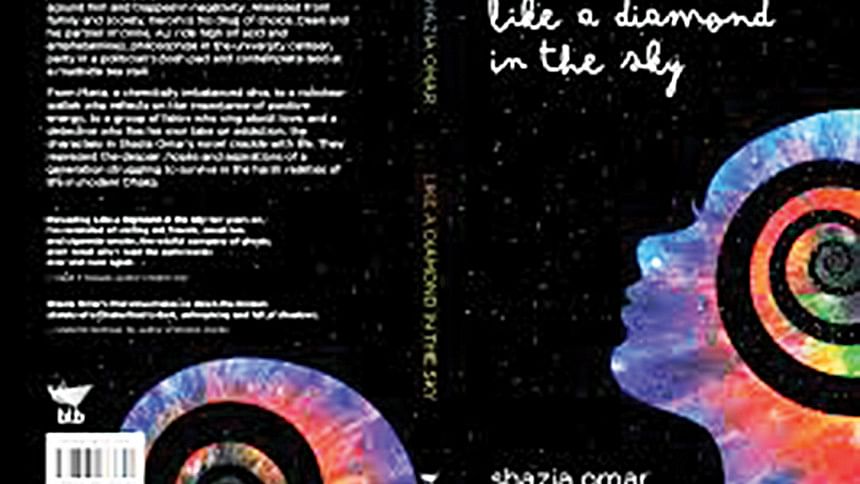Understanding Addiction: A Review of Like a Diamond in the Sky

Unshaven, skeletal men, with hollow, black-ringed eyes, sitting in silent solitude in inner city gutters. Youngsters turned ageless by addiction, their endless need for the next fix drowning out all other desires, commitments or relationships. That's the sort of portrait of drug users that I grew up with but never truly bought into. I did not trust the propaganda machine that conjured up the glib slogans ('Just say no!') or the sad black-and-white posters of victims held captive by an inescapable chemical dependence.
More reliable information about users was hard to come by, lost in moronic platitudes about massacring brain cells, about instant addiction to drugs that I knew did not create dependence, about implausible pushers flocking the gates of primary schools to force heroin onto unsuspecting kids without any money to buy it or the means of stealing it later. Every fictionalized account ended in prostitution, infection, misery and solitude. Frankly, an overdose often seemed the best, the only way out.
Not so with Shazia Omar's Like a Diamond in the Sky, now re-published by Bengal Lights Books ten years after it was first written. Deen, her attractive and charming hero-addict, has a life apart from chemical stimulants. He develops strong relationships that don't always flounder because of his drug usage; he has a sense of loyalty to his friends, even to his unexpectedly kind-hearted pusher – in short, he's someone I think I would like to spend time with, whether he is high or not. He is a many-textured young man, admittedly living on the edge … but so many of us do when we are undergraduates, especially if we have the money to make it fun. And Deen or one or another of his friends usually does.
And that's what made Omar's story so appealing to me.
True, the prose is vigorous, her range of vocabulary more than adequate for the complexity of her characters and the adventures and incidents that mark their lives, and the pace rapid enough to maintain the interest even of readers with attention deficit disorders. Yes, we are happy (and, perhaps, a little surprised) to be on familiar territory, as Omar guides us through the shanties of Uttara and Tangail and the glitter of Dhaka's diplomatic quarter, without ever patronizing us about the evils of poverty or bragging about the opulence of the good and the great. But the success of her novel lies elsewhere!
The essential thing is that we care about Deen and, so, worry for him when he's ill, when he tries, tries and tries to give up all the chemical paraphernalia that, at times, make him feel trapped because he can never make his escape. We will him to make it through. And we do so because we know and like him. He's not your usual faceless, archetypal junkie. That's Omar's gift to us: she's more interested in Deen than she is in some all-too-familiar morality. She never lectures us, then, about the terrible risks he and his companions take along the narcotic path towards their own destruction.
Like a Diamond in the Sky is a novel that is hard to put down, fast-moving, but also memorable because we invest in characters and their futures and remember them fondly long after we turn the final page.
Mark Bartholomew has worked with different universities and schools in Bangladesh since he first arrived with British Council in 1999. He loves reading and is interested in promoting Bangladeshi authors.

 For all latest news, follow The Daily Star's Google News channel.
For all latest news, follow The Daily Star's Google News channel. 



Comments